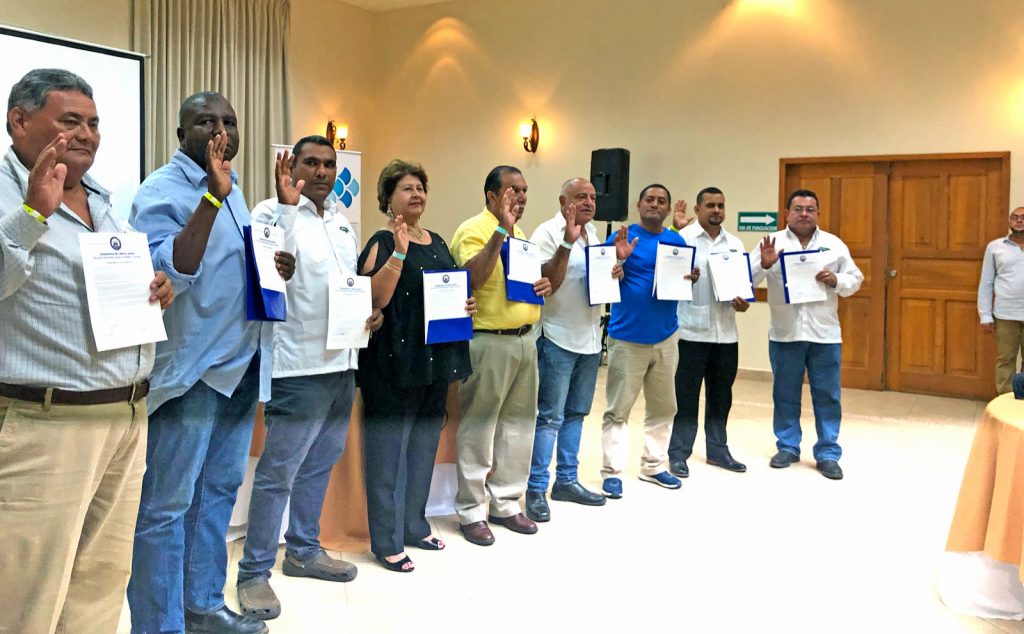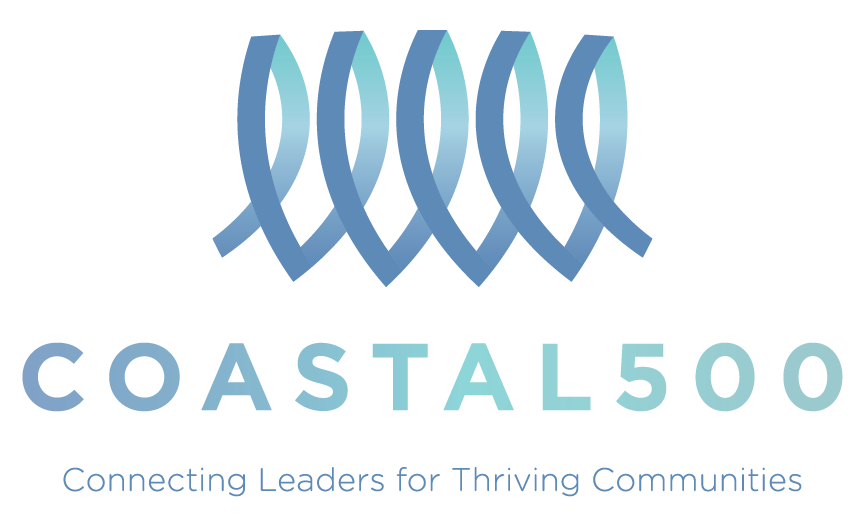Make sure you never miss an update. subscribe to the progress update newsletter
In this issue:
Features
Fish Forever Program Round-Up
What We’re Reading
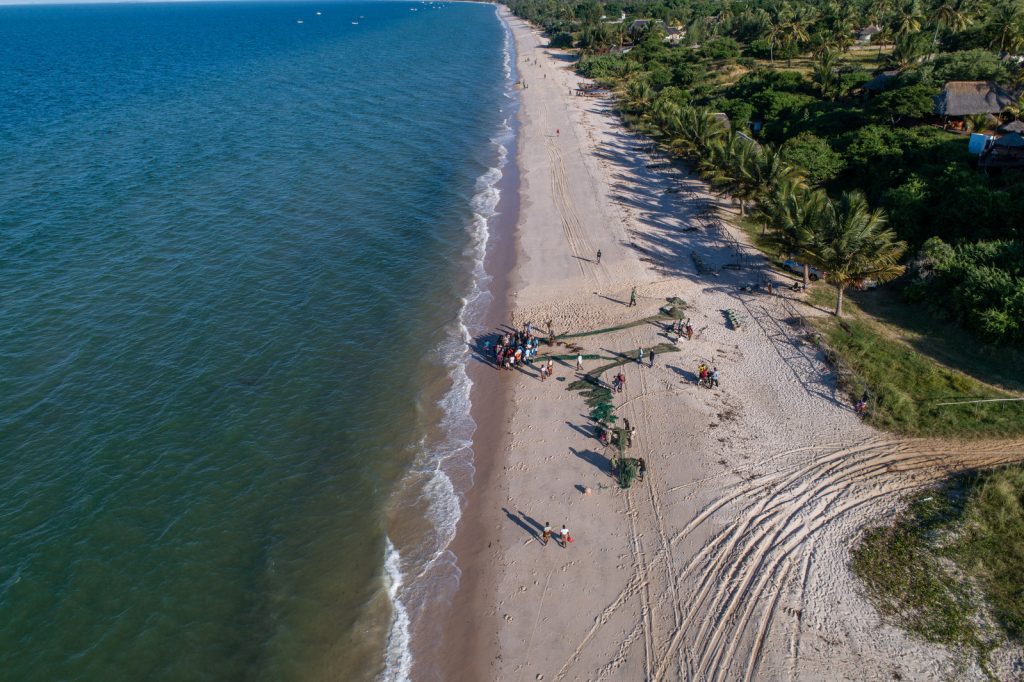 |
Mayors, Local Government Leaders Launch the Coastal 500On June 8 – World Ocean’s Day – more than 250 people gathered virtually to launch the Coastal 500, the largest global network of mayors and local government leaders committed to work towards thriving and prosperous coastal communities. Supported by Rare’s Fish Forever program, the Coastal 500 aims to unite 500 mayors and local government leaders with a uniform pledge for action on coastal fisheries. |
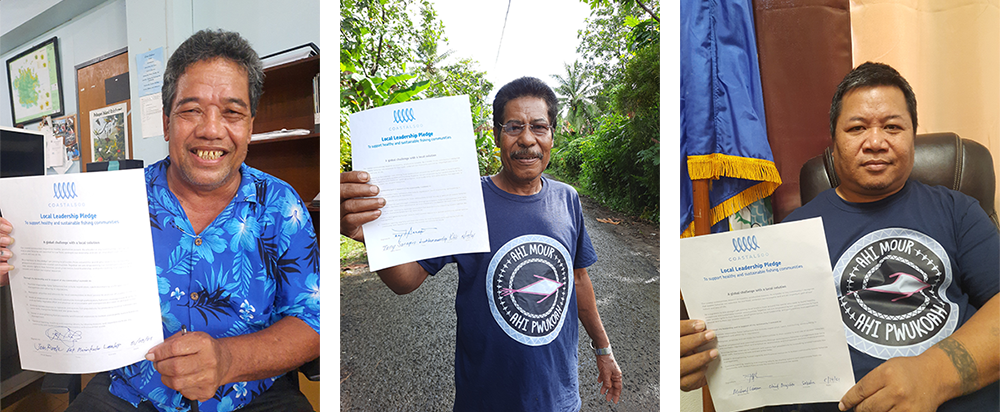 |
What is the Coastal 500?A shared vision. Common purpose. Connecting local action for global impact. Mayors and local government leaders from eight countries representing 1.2 million coastal fishing community members share why they joined this new global network and encourage others to commit to implementing community-driven, biodiversity-friendly, and climate-resilient solutions for coastal fisheries. |
|
|
Why Do We Pledge?From New Year’s resolutions to climate and giving pledges, people regularly commit to taking action on an issue. Pledges can start a conversation about an issue, change beliefs surrounding it, or communicate new expectations for a sector. In the case of the new “Coastal 500 Pledge,” mayors and local government leaders signal a desire to change a norm. |
|
|
The Coastal 500 Media SnapshotRead the Thomson Reuters Op-ed: To help the ocean globally, we need a local approach by Antha Williams, Bloomberg Philanthropies; Mayor Spurgeon Miller, Guanaja, Honduras; and Steve Box, Fish Forever, Rare. Watch the 1-minute video with Philippines Mayor Maria Liza Resurreccion, produced by our Vibrant Oceans Initiative partner, Bloomberg Philanthropies. Read the Devex article: Local leaders called upon to safeguard small-scale fishing. |
Fish Forever Round-up
Our Global Network
*Real-time program data. For more details, see https://portal.rare.org.
Launching Fish Forever’s public data portal: Rare has officially launched the Fish Forever portal, https://portal.rare.org. This digital, public data portal provides access to Fish Forever tools and data and supports evidence-based decision making for building healthy coastal fisheries and ecosystems. Watch our short video to learn more about how the portal empowers Fish Forever partners, local leaders, and fellow practitioners.
Two Rare-published reports on ocean-climate action. Rare recently published two reports that aim to increase ocean-climate action from different perspectives (ambition and finance): 1) A detailed overview of how the ocean should contribute to the UNFCCC’s global stocktake also looks at how the global ocean community will include oceans and coasts in assessing progress in meeting the Paris Agreement goals. 2) A resource to enhance access to finance for coastal adaptation proposals to the Green Climate Fund offers key considerations for specific ocean ecosystems while integrating relevant investment criteria and ecosystem-based adaptation (EbA) standards.
Mozambique
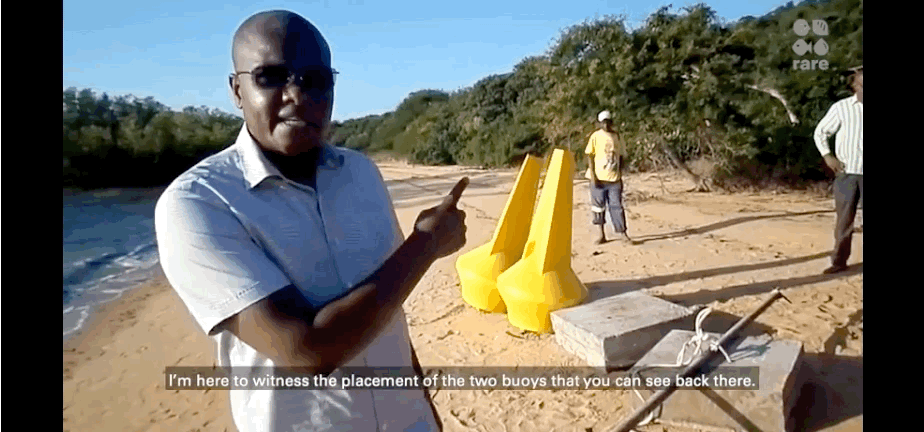
Mozambique celebrates its first community-managed marine reserve: In May, Fish Forever, together with Mozambique’s coastal fishing communities, achieved another milestone alongside the recent landmark regulation empowering community-based management in Mozambique. Two demarcation buoys placed in the Bembi no-take reserve in Maputo province off the Machangulo coast now mark the country’s first no-take reserve to be put under community-led management. Rare’s Atanasio Brito and Edson Anselmo Jose were on hand to celebrate the milestone.
Pacific Islands: Palau and Federated States of Micronesia (FSM)

Signing the Coastal 500 Pledge in FSM: In May, all five Chief Executives/Mayors of Pohnpei signed their respective MOUs to partner with Rare and the Micronesia Conservation Trust on Fish Forever and the “Fishing for Climate Resilience” project supported by the International Climate Initiative (IKI) of the German Federal Ministry for the Environment, Nature Conservation and Nuclear Safety (BMU). At the same time, all five Mayors also signed the Coastal 500 Pledge reaffirming their personal commitment to sustainable fisheries and resilient coastal communities.
Brazil
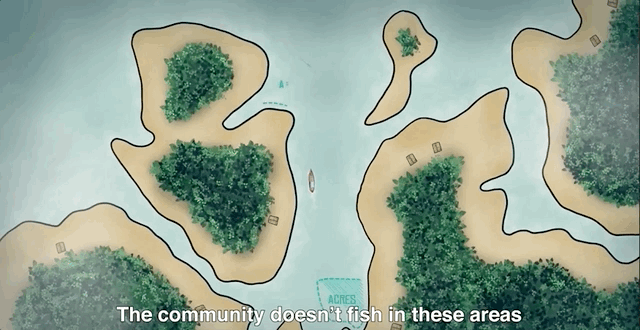
Network of marine reserves video: Rare Brazil produced an explainer video about the value of networking marine reserves to sustain fish populations and ecosystems.
Public Leadership Network for Artisanal Fisheries: This Network in Brazil, supported by the Pará state Secretariat of Environment and Sustainability (SEMAS), has kicked off its first action: signing the Coastal 500 Pledge: “As a signatory of this commitment, I join local leaders from around the world in the search for constructing healthy, prosperous and sustainable coastal communities.” Mayor Marlene da Silva Borges, of Magalhães Barata (Pará), was the first to sign, with support from Silvano Costa, Secretary of Environment.
Behavior Adoption Campaigns: Rare Brazil recently celebrated the anniversary of three Marine Extractive Reserves—Caeté-Taperaçu, Gurupi-Piriá, Tracuateua and Araí-Peroba in Pará state—with an event. Participants included Municipal Council leaders from Bragança and Viseu cities, youth from Resex Araí-Peroba and Tracuateua; and universities and research institutes. Partners in the region are carrying out the “Resex Forever – Our Home. Our Life. Our Resex” behavior adoption campaign to strengthen participation in management.
Philippines
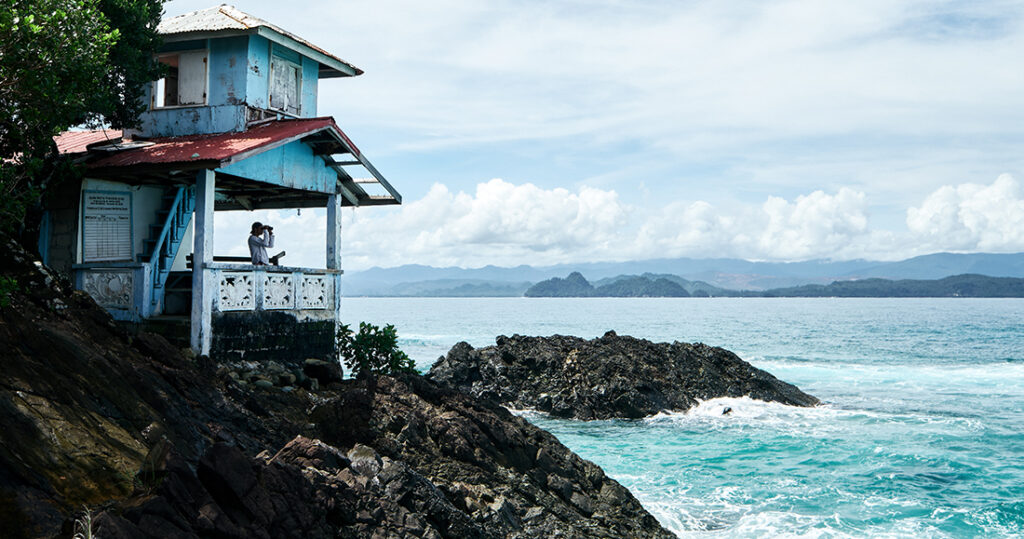
Three-part webinar series on climate and local action: To draw attention to the Decade of the Ocean, Rare and the Philippines’ Climate Change Commission (CCC) teamed up with the University of the Philippines Marine Science Institute for a three-part webinar on how the climate is changing the country’s coastal ecosystems, and how local communities are taking action to cope with these impacts.
Fisheries and coastal fisheries monitoring underway: Coastal resource specialists from the Marine Environment and Resources Foundation have been visiting Fish Forever partner communities to conduct biophysical assessments of marine protected areas and buffer zones. From Pandan Bay in Antique to Camotes islands in Cebu and Siargao islands in Surigao del Norte, marine biologists looked at fish biomass and the health of marine ecosystems such as coral reefs, seagrass, and mangroves. The biannual surveys allows local governments to make science-based decisions on how to sustainably manage their coastal fisheries.
New insurance plans for small-scale fishers: Their risky profession exposes many fishers to daily hazards. Now, the Philippine Crop Insurance Corporation, in partnership with Rare, offers insurance for fishers for P50 for one year. In the Bindoy municipality, the campaign team encouraged fishers to enroll with incentives, such as free umbrellas and bags. Other insurance products have been offered in partnership with Pioneer, 1CISP, Rimansi, and Ayannah. The insurance program’s pilot phase started in March in Looc and Lubang in Occidental Mindoro; Bindoy and Ayungon in Negros Oriental; Pilar in the Camotes Islands in Cebu; Libertad in Antique; and San Carlos City in Negros Occidental with support from the Ocean Risk and Resilience Action Alliance.
Indonesia
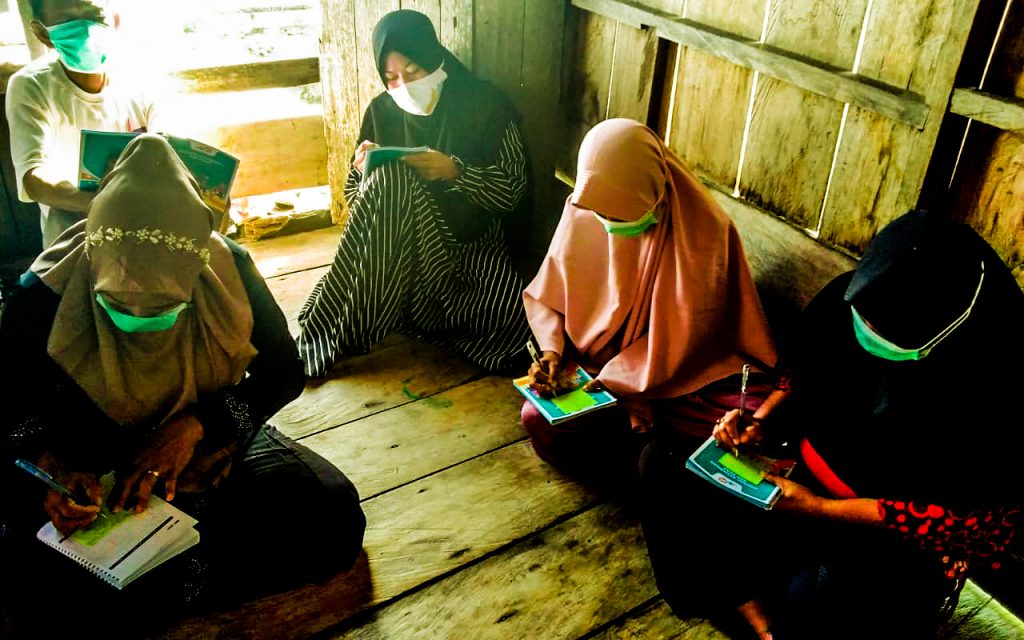
Finalized Covid-19 Impact surveys on fisher household socioeconomic status and reef health: In May, the Indonesian team and university partners completed a socioeconomic survey of 2,026 respondents from fisher households adjacent to seven managed access with reserve areas (MA+R) in Southeast Sulawesi province. The team also completed underwater dive surveys at 15 MA+R areas, examining coral reef health and fish populations at 92 reef sites. This socio-economic and biodiversity data will help Rare assess the performance of the process of establishing MA+R areas since 2019. We will also use it to evaluate Covid-19’s impacts on household well-being, livelihoods, food security, reef health and fish populations.
Formalizing managed access areas and village management bodies and mobilizing key behavior messaging: Rare is formalizing 16 MA+R areas in Southeast Sulawesi province, covering more than 320,000 hectares of marine waters and adjacent to 194 fishing communities, for legal approval by the provincial government. All 16 have fully notarized management bodies and 90% have now finalized their fisheries management plans. The MA+R management bodies are also completing other requirements, e.g., each must register a minimum of 20 fishing boats, owned by the core management body members, and village management bodies are reviewing behavior campaign materials to mobilize attention to the required behaviors of MA+R management.
Forging financial behaviors: The Indonesia team is rolling out a financial management tool for households, called the ‘financial agenda for saving clubs,’ which promotes nine financial behaviors. Forty-three savings club members from four villages have started using this tool, which will be rolled out across all savings clubs. During savings club ‘share-out’ meetings, members discuss the challenges in adopting these behaviors and share experiences in overcoming financial challenges.
Mesoamerican Reef (MAR)
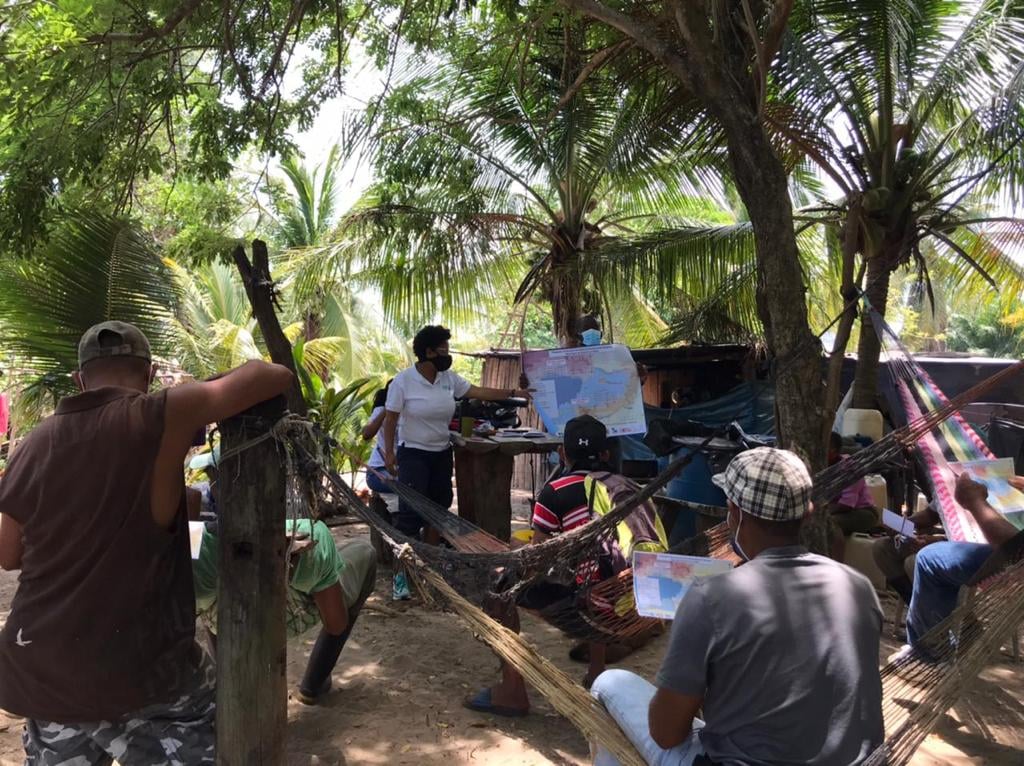
Scaling networks of reserves in Honduras: Honduras’ reserve network continues to grow with the recent declaration of the Bajo Calderón no-take reserve in the Trujillo municipality. Covering an area of 18.8 km2, Bajo Calderón will help replenish fish populations and revitalize critical habitats to support 10 coastal communities and over 250 artisanal fishers. In May, Rare took steps to fast-track no-take reserve designations for the effective protection of Honduran coastal habitats. Through an MOU, we are working with the Institute for Protected Areas (ICF) and local co-managers to integrate Rare’s proposed reserve network into the management and marine spatial plans of the 8 MPAs along the nation’s Caribbean shore.
What we’re reading
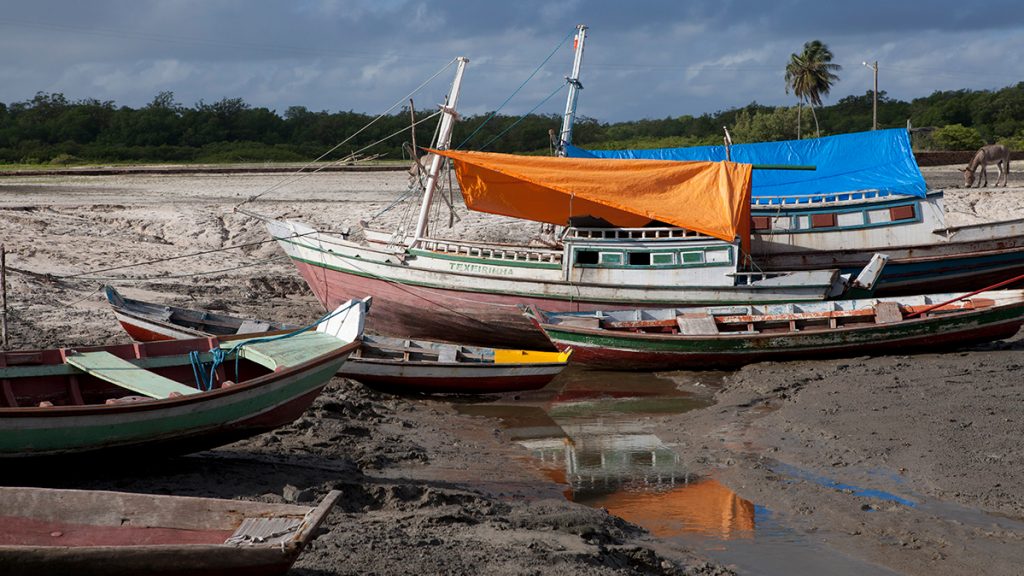
Pathways to establishing managed access and networks of reserves (May 2021)
Domondon, P. R., Tirona, R. S., Box, S., & Pomeroy, R. (2021). Pathways to establishing managed access and networks of reserves. Marine Policy, 130, 104580.
In 2020, Rare analyzed the successful legal, regulatory, and institutional pathways undertaken to establish managed access with reserves (MA+R) for small-scale fisheries in the Philippines, Indonesia, and Brazil. This analysis, recently published in Marine Policy, identifies how local communities secure and strengthen legal and functional access rights to fisheries resources at the appropriate geopolitical scales (at the state level or through local government nested within provincial governance).
Positive Social-Ecological Feedbacks in Community-Based Conservation (May 2021)
Quintana, A. C. E., Giron-Nava, A., Urmy, S., Cramer, A. N., Domínguez-Sánchez, S., Rodríguez-Van Dyck, S., Aburto-Oropeza, O., Basurto, X., & Weaver, A. H. (2021). Positive Social-Ecological Feedbacks in Community-Based Conservation. Frontiers in Marine Science, 8.
Many area-based conservation measures, such as no-take zones, are permanent measures aiming to protect biodiversity and achieve social objectives. In addition, the often take time to implement. This study presents an alternative: an adaptive, temporary, co-managed area closure designed by fishers and approved by the government. The authors used a case study in northwest Mexico to explore the potential social and ecological outcomes and found that this type of adaptive management could be effective in adapting to climate and other social-ecological changes, yet also could also result in a lack of benefits and confidence in the approach, due to poor ecological design of the area. In any case, the proposed approach is a learning opportunity for implementers of co-management.
Equitable and effective area-based conservation: towards the conserved areas paradigm (May 2021)
Jonas, H. D., Ahmadia, G. N., Bingham, H. C., Briggs, J., Butchart, Stuart H. M., et al. (2021). Equitable and effective area-based conservation: towards the conserved areas paradigm. PARKS: The International Journal of Protected Areas and Conservation, 27, pp. 71-84.
The Post-2020 Global Biodiversity Framework is currently being negotiated by parties to the Convention on Biological Diversity (CBD), and will replace the previous decade’s strategic plan, which included the Aichi Biodiversity Targets. Jonas et al. focus on Target 2 of the new framework, which calls on Parties to protect 30% of the planet, focusing on areas particularly important for biodiversity, by 2030. The authors commend the CBD’s clarity on the updated guidance regarding Target 2, and elevate in particular, the core principle of good, equitable governance and conservation effectiveness, and the standardized criteria with which to measure them. They conclude by suggesting that an inclusive discussion regarding the term “conserved areas” be had, as the term remains undefined in the new framework.
Endemism increases species’ climate change risk in areas of global biodiversity importance (May 2021)
Manes, S., Costello J., M., Beckett, H., Debnath, A., Devenish-Nelson, E., Grey, K., Jenkins, R., Ming Khan, T., Kiessling, W., Krause, C., Maharaj S., S., Midgley F., G., Price, J., Talukdar, G., and Vale M., M. (2021). Endemism increases species’ climate change risk in areas of global biodiversity importance. Biological Conservation, 257, p. 109070.
Climate change is already known to impact marine biodiversity and is predicted to intensify over the next few decades. In this study, Manes et al. investigated climate change effects on areas of special concern, such as those disproportionately rich in biodiversity and uniqueness. Using over 8,000 climate change projections on 273 areas of high biodiversity, the authors found that nearly half of the endemic species in marine ecosystems are projected to face a high-risk of extinction. The article concluded that the protection of high biodiversity areas requires climate adaptation strategies that are informed by species-specific and community-level knowledge, which allow for robust evidence to examine vulnerability and assess risk.
Why they must be counted: Significant contributions of Fijian women fishers to food security and livelihoods (May 2021)
Thomas, A., Mangubhai, S., Fox, M., Meo, S., Miller, K., Naisilisili, W., Veitayaki, J., and Waqairatu, S. (2021). Why they must be counted: Significant contributions of Fijian women fishers to food security and livelihoods. Ocean & Coastal Management, 205, p.105571.
Through conducting household and focus group surveys, this study assessed the role, fishing practices and contribution of indigenous Fijian women in small-scale fisheries. The authors found that while several traditional views of women in SSF were reinforced, such as women fishing closer to their village and primarily gleaning for invertebrates and seaweed, women also fished a wider range of habitats and caught over 100 species of fish. This study reinforces women’s contribution to household food security, and highlights the need to reconsider gender norms and empower women for full participation in fisheries management.
Fish Forever: A solution to coastal overfishing – delivered by empowering communities through clear rights, strong governance, local leadership, and participatory management – that protects essential fish habitat and regulates fishing activities to replenish and sustain coastal fisheries.
Goal: To deliver replicable and scalable community rights-based management across ten countries, using a global network of 500 local leaders to secure livelihoods for one million fishers, alleviate poverty, ensure food supply, and protect coastal ecosystems from chronic threats.
Fish Forever Countries: Philippines, Indonesia, Mozambique, Brazil, Honduras, Guatemala, and the Pacific Island countries of Palau and the Federated States of Micronesia.
Fish Forever is possible thanks to the support of many, including the following current donors:

